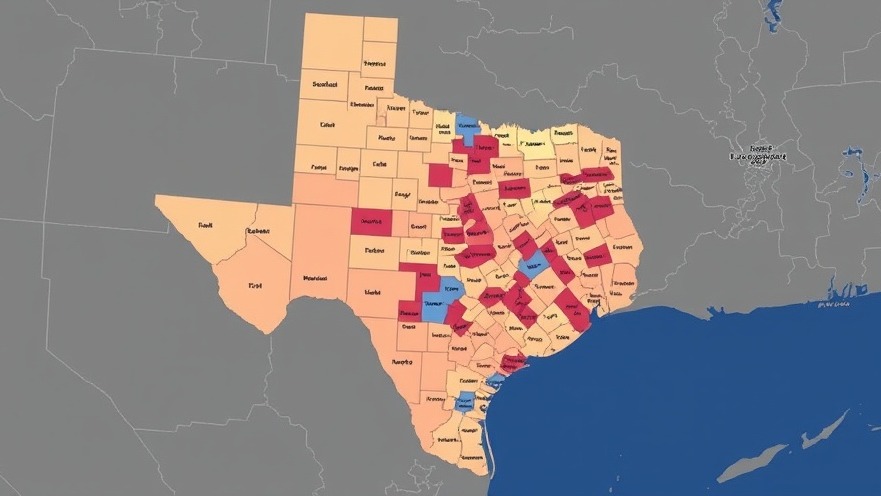
Texas Senate’s New Congressional Map Faces Legal Challenge
In a significant move that could impact the political landscape of Texas, the Texas Senate has recently approved a new congressional map after contentious deliberations. However, this decision has soon become the target of a lawsuit, underscoring ongoing tensions surrounding redistricting in the state. Redistricting, the process of drawing electoral district boundaries, is crucial as it determines political representation at various government levels.
Understanding the Implications of Redistricting
Redistricting often leads to fierce political battles, particularly in a state as diverse and populous as Texas. The latest congressional map has sparked concerns among various groups about potential gerrymandering—manipulating electoral district boundaries to benefit a particular political party. Critics argue that the new map dilutes the voting power of minority communities, thus raising questions about fair representation in Texas politics.
What the Lawsuit Reveals: Deeper Social Connections
The lawsuit, filed shortly after the map’s approval, highlights the significance of community representation. As Texas grows in population and diversity, ensuring equitable representation becomes increasingly vital. Social and political groups are rallying to protect their interests, suggesting that the implications of this lawsuit could resonate beyond electoral boundaries, addressing broader societal concerns of equity and justice.
Historical Context: Lessons from the Past
This latest chapter in Texas’s political saga is not an isolated case. Historically, redistricting has been a contentious issue in the state, with instances of courts intervening to challenge unfair maps. For example, the 2011 redistricting process faced scrutiny, and subsequent maps were rejected by federal courts for violating the Voting Rights Act. These historical precedents serve as a reminder of the long-standing fight for fair representation and the potential for legal battles in the current situation.
Predicting the Future: What’s Next for Texas Politics?
The outcome of this legal challenge could set a critical precedent for Texas’s political future, particularly as the 2025 elections approach. With the state’s demographics shifting, how the courts rule on this matter could influence voter turnout and party dynamics in the upcoming election cycle. Political analysts suggest that the implications could extend nationally, impacting how redistricting is approached in other states.
Understanding Diverse Perspectives
While many express concern over the implications of the newly drawn map, there are arguments in favor of the changes. Proponents assert that the map enhances the political representation of certain rural areas, promoting a balance between urban and rural needs. This diverging perspective emphasizes the complexity and multifaceted nature of redistricting debates in Texas—a topic that warrants careful consideration among voters.
The Stakes: How This Affects Daily Lives
For Texas residents, the new congressional map is not just a matter of political strategy; it directly affects their daily lives, from healthcare access and education funding to infrastructure improvements. The polarization of political representation can shape the allocation of resources, meaning that the lawsuit's outcome may influence economic and social policies that affect every Texan.
What Actions Can Concerned Citizens Take?
Texas citizens concerned about the implications of this lawsuit should consider engaging in local political discussions, reaching out to representatives, and participating in community organizations advocating for fair representation. By becoming informed and actively involved, residents can help shape the outcome of significant political transitions in their state.
Conclusion: The Call for Vigilance
The new congressional map's legal challenges remind us of the importance of vigilance in our democratic processes. As Texas moves forward, residents must remain actively engaged in understanding how these changes affect their communities and advocate for equitable representation. With the 2025 elections on the horizon, now is the time for Texans to make their voices heard.
 Add Element
Add Element  Add Row
Add Row 



Write A Comment